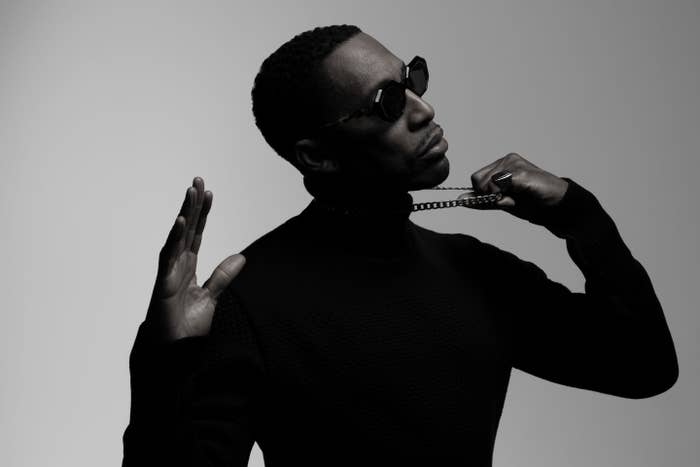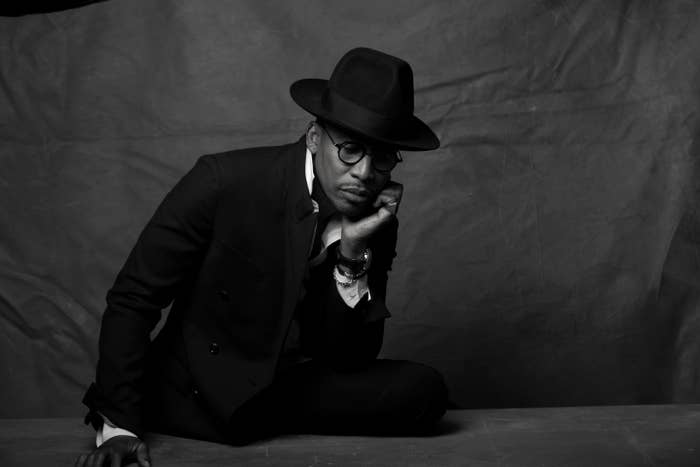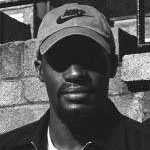
When I speak with soul music legend Raphael Saadiq, he is poised, pausing for a few seconds before answering my questions. At 53, his career is far from over, but he’s more contemplative about the choices he makes now when it comes to creating. With a life before music mired by family tragedies—Saadiq attended his first funeral aged seven—it’s easy to understand why he would go down a path where he’d want to make fun and joyful records.
While it’s difficult to remove black pain from art, there’s a sense he used his own music as a form of escapism, but some could argue that it was a way to distract himself from having to process the grief that had affected much of his early life. The polymath’s most recent long-play, Jimmy Lee, is named after his brother Jimmy Lee Barker overdosed after contracting HIV in the ‘90s. Four of his fourteen siblings died in tragic circumstances—the first being his brother, Alvie Wiggins, in 1973—and while he didn’t initially set out to make a record that would zero in on that difficult time in his life, they called out to him when he was working in the studio one night.
The former Tony! Toni! Toné! singer has kept on moving through the tragedies. After seeking an escape from Oakland and eventually settling in LA, Saadiq would go on to work with D’Angelo—whom he co-wrote and co-produced “Lady” for, which remains one of neo-soul’s most endearing hits. It’s not that he kept on moving without ever slowing down, but he channelled the grief into spending thousands of hours in the studio over the past thirty years to bring joy to people’s lives.
While it’s earnest of Saadiq to dedicate his life to creating music for the world to enjoy, it was necessary for him to give back to himself. Whether you’re spiritually-inclined or not, it doesn’t matter: loved ones that have passed away speak to us in many different ways, and for Raphael Saadiq, his siblings were calling on him to use them as a vessel for Jimmy Lee.
COMPLEX: How do you feel about the album a few months after its release, considering how personal it was?
Raphael Saadiq: It’s still early, but it feels good to be out there playing the record.
This is a very different-sounding album to 2011’s Stone Rollin’. How did the years in between influence the sonic identity of Jimmy Lee?
Most people would say this album is more about my own personal journey, compared to previous records. I still had the same energy when it came to making Jimmy Lee that I had on Stone Rollin’, which I also brought over from The Way I See It. I think the production value went up on those records, compared to where I was coming from with Instant Vintage. I think this record was about inviting people into my life, so I guess this ended up being a showcase of who I’m finding myself to be at this point in my career.
Do you feel like a lot of that was down to being at a point in your life where you’re more reflective?
Yeah, 100%. You have the chance to reflect on your life and play into what’s going on. I’ve never really been one to reflect what’s going on—it was more about what was happening with me. That’s the game I’ve always played, not what someone else is doing. I think I’ve had the luxury as a musician to be able to find new chords, maybe playing the same chords or listening to music that would allow me to jump into other areas. I’m very fortunate to be able to be versatile and I feel as though I’m paying respect to the artists that came before me, especially the ones I never had a chance to come into personal contact with.
For someone that’s had a near-forty year career, has this period in your life allowed you to look back on it as being a legacy?
I look back at it but it was through this record and performing it that I was able to listen to people respond to it. It’s hard for me to put into words, but I always thought that once you’ve been in the game for as long as I have, you should pretty much be around your legacy. Everybody I was around saw it as a job, and even though it is, I don’t necessarily see it as one. I didn’t go to university and when I was growing up, everyone around me had careers—my parents worked hard for decades so when I made music my job, I guess my goal was just to do it as long as possible. I mean, you’re a journalist so, at the moment, you probably only see it as a job. In our industry it’s called a legacy, but for everyone else it’s a day job, just doing what you’ve got to do to live.
I guess people call it ‘legacy’ because of the impact art can have on culture, but you’re right: someone working in a hospital for years, their work would’ve had an impact on someone’s life. Perhaps we see legacy as collective influence, but it’s safe to say that your work has left its mark.
Yeah, if I look at it that way, I do feel that from a lot of younger and older artists. When I’m walking down the street, people will look back on my history and pinpoint the moments they liked the most and they’ll say thank you to me for staying true.
How have you been able to stay true to what it is that you do and what you’re called to do? I imagine, at times, it’s been difficult to keep your musical identity.
I just have it in me... I don’t know, some people just have it in them. I only know one way to be and I never thought about being any other way—I don’t know what that looks like. At the same time, I’ve never knocked what anyone else has done, or is doing. I also think that’s how you stay true to you: by not being judgmental.

You show a lot of vulnerability on Jimmy Lee. What kind of space, mentally and emotionally, did you have to put yourself in when writing it?
After going through hard times and family tragedies, all these years of making records without talking about it, I think it built up and got so heavy that it was one thing I had to get off my chest before it turned into something else. I guess it helped talking about my sister’s death, my brother’s drug addiction and then his later drug-related death, and seeing my parents go through it. I was trying to make everybody happy and no one had to really worry about me, but when I lost my siblings, I had to start worrying about my parents. But most of my time since those years has been dedicated to music, and moving away from my hometown meant that I wasn’t really thinking about my parents in that regard. This time, I felt as though I had to give something back to my family and I’m not sure they knew how I felt so it’s been quite therapeutic for me.
Has the record been able to draw you closer to fans because of the relatability?
Yeah, I think so.
Does Jimmy Lee mark a turning point in your career and perhaps a new path?
Yeah, I feel that this record helps clear the way for me to do whatever I want to do. After The Way I See It and Stone Rollin’, I could’ve easily got stuck making easy-sounding records. Even though I love it and had fun playing those records, I just feel like I should have as much fun as possible and that’s the most important part. It’s fun for me to figure things out and after this record, that’s what I’m trying to get back to.
You mentioned honouring the artists that came before you. When you look at the lineage of black music, do you ever reflect with your peers and use that as a guide for what you’re doing now?
The past paints a picture for me, so when I speak of it, I don’t go back in time. It’s my strength, which makes it easier for my peers around me because it makes it that much easier to collaborate with them.
You see the future as exciting but how do you go about ensuring that you’re able to express yourself freely? Do you hope that it becomes normal for you?
I guess it’s normal for me, but it’s not easy. I feel that Marvin Gaye was able to express himself after making so many Motown records, and after making all those happy songs, he found himself making Here, My Dear and What’s Going On. I think it’s brave, and me myself making two ‘60s-sounding records, you have to have a strong palate to open up and say what you’re going to say. Diversity in music brings out reality in the sound.
With each album, there’s a sense that we’ve been able to see different sides of you and your life. That’s important as well, because you get to hear the development of an individual through sound.
Yeah, I agree. And it’s also cool when you get to see yourself grow. You asked me in the beginning of the interview about legacy, and I think it’s special that I can make a record at this point in my career; it’s a brand new record, but it’s a good story. For a lot of people at this stage, they see it as the end.
I wanted to go back to the Lucy Pearl days and get a better understanding of how you feel about it now. I know a lot of fans were wishing for some sort of follow-up.
I still feel good about it. It was a great idea, and it was a moment that reflected a pivotal moment in all of our careers. I got to work with Ali Shaheed next to me all the time, especially after leaving Tony! Toni! Toné! When I listen to the music we made, I still feel as though it holds its ground.
Did you have ideas of following it up, or were you always sure that it was just going to be the one record?
It was just the one project idea, but I thought about different versions of Lucy Pearl; maybe three other people. Maybe a Lucy Pearl 2021! I don’t know yet.

